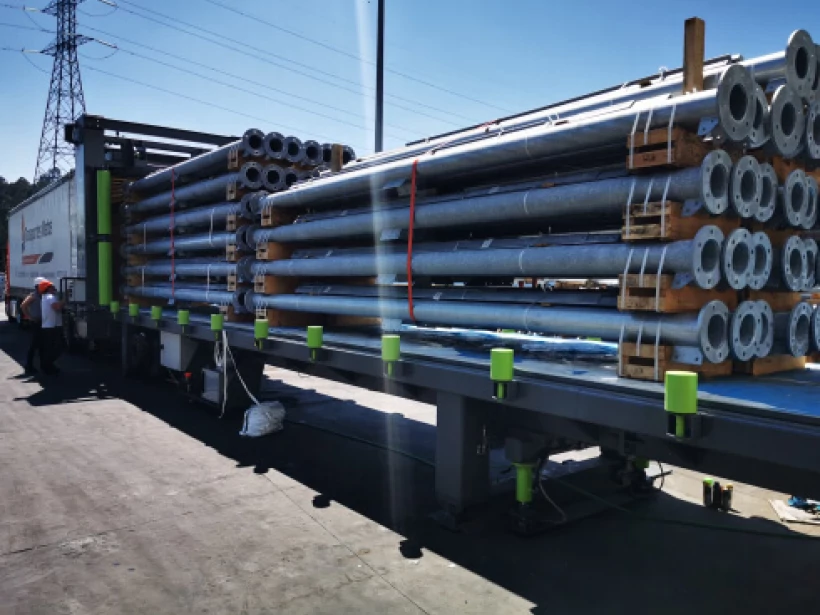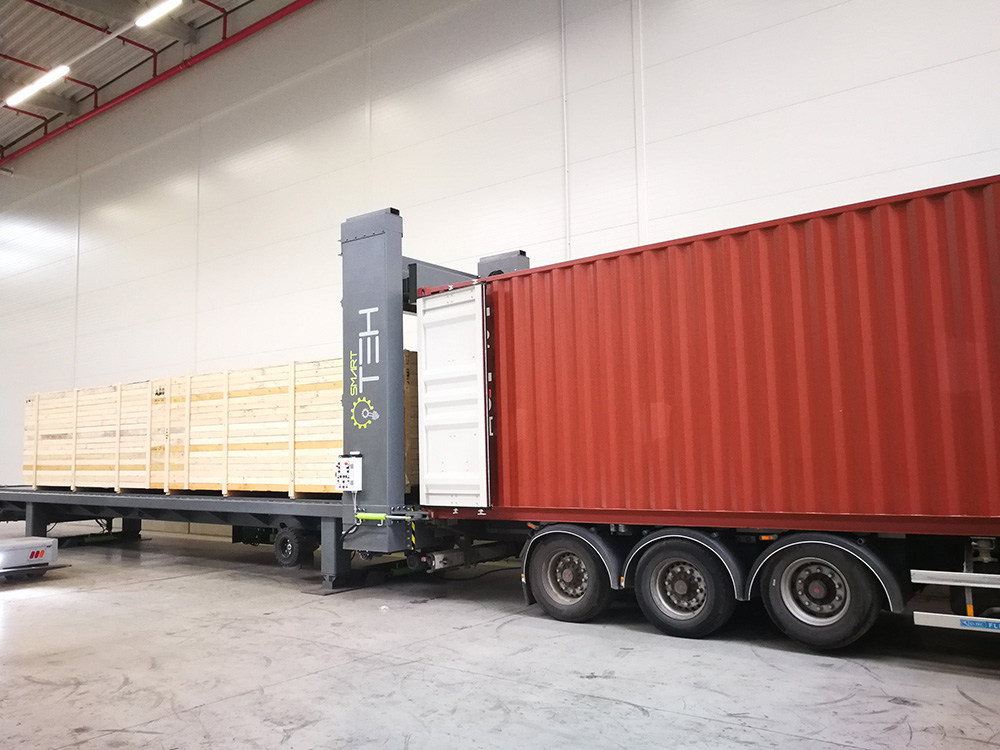Automated Container Truck Loading - What are the benefits?

The operation of loading and unloading containers constitutes a vital stage in the supply chain, especially when dealing with bulky and heavy products, such as in the wood or steel industry.
SmartTEH offers an automatic system that allows you to load and unload containers in a matter of minutes, compared to longer, traditional processes of truck loading and unloading.
What is an automated container truck loading system?
The system basically consists of a moving loading plate, capable of sliding within the space of the containers and allowing in just one entry or exit, the loading or unloading of all the merchandise inside the container.
This platform has the capacity to support up to 4000 loads and is driven by an electric or hydraulic motor with clamps to keep the structure fixed at the moment of the loading operation. Complement the truck loading system, a set of legs adjustable both vertically and horizontally, a control system to operate on-site or by remote control, and a gate to ensure a smooth movement of the goods and that the container door can be closed correctly.
Benefits of choosing an automatic container loading system:
There are numerous benefits, measured by time, economics, efficiency and quality. The most notable points are listed below:
1. Product safety will be increased
By organizing the merchandise on the loading platform, all excess movement of goods as well as reordering inside the container is avoided and consequently, the risk of product damage is reduced. Customer claims, devolutions for poor product quality and/or rework will be reduced.
2. Labor cost will be reduced
The productivity of the labor will be considerably increased, by reducing unnecessary and tiring excesses of movement that the personnel take to dispose of the merchandise in the container or to pull it out. Consequently, labor may be reallocated to another task in the warehouse or terminal.
3. Truck loading and unloading time will be reduced
Trucks, either owned or outsourced, are an expensive resource and, therefore, their idle capacity should be limited to the maximum. The use of automated container loading and unloading systems allows for an increase in the number of shipments or receptions of trucks per time unit, in addition to contributing to the reduction of delivery time and an increase of the service level. It is also worth noting that it is possible to preload the load plate with merchandise even when the trucks have not yet arrived at the dock.
4. The personnel safety will be increased
When using automated container loading and unloading systems, specific and appropriate equipment is used instead of alternatives that put the integrity of the personnel at risk. With this, both the risks of incidents or accidents at work and personnel absenteeism rates will be reduced to minimum figures. OSHA offers solutions tips to avoid injuries in warehousing. (Source: https://www.osha.gov/Publications/3220_Warehouse.pdf).
5. Working space will be better used
The cargo space is used 100%, avoiding any intermediate and dispersed storage of the merchandise around the loading dock. When unloading pallets from the truck takes place, the plate leaves all goods in just one condensed area. It should also be considered that space availability is increased in case of unexpected receptions or dispatches.
6. Tonnage to be transported will be under control
The automated system offers a screen for load weight reading, thus avoiding any subsequent adjustments for deviations in the maximum admissible weights, or preventing penalties for lack of weight control.
7. Inappropriate equipment manoeuvres will be eliminated
Equipment designed for the sole purpose of loading/unloading will be used, instead of using alternatives that risk the safety of equipment and tools, personnel, products, and the property in general. On the other hand, the automated system requires low maintenance.
8. An organized environment will be promoted
The operations with specific equipment contribute to the creation of a safe environment, promoting good manufacturing practices and more organized and orderly sites, with ease in locating the products and greater satisfaction of the personnel involved.
9. Operational costs savings will be achieved
Finally and most notably, in summation of all of the benefits mentioned above, any improvement in time, space, risk or use of resources in general, will imply lower operating and logistical costs, contributing to increase the profitability of the company.




